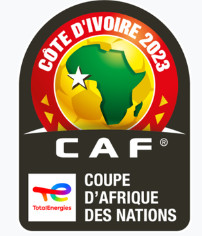The quarterfinals of the 34th edition of the Africa Cup of Nations football championship, currently underway in Ivory Coast from January 13 to February 11, 2024, promise confrontations that no one foresaw.
The matches are scheduled to take place on Friday at the Felix Houphouet-Boigny and Hassan Attara stadiums in Abidjan, and on Saturday at the Peace Stadium in Bouaké and the Charles Konan Banny Stadium in Yamoussoukro.
However, the eight major teams still in the race to succeed Senegal are not necessarily the ones experts anticipated.
While expectations hinted that this African championship would be the “toughest ever,” no one foresaw the elimination of this significant number of “African giants” to the extent that none of the four teams qualified for the semi-finals in the previous AFCON held in Cameroon in 2021.
Thus, Senegal, the reigning African champion and the finalist against Egypt at the Olympic Stadium in Yaoundé, left the tournament.
Burkina Faso and Cameroon, the losers in the semi-finals, also exited in the round of 16.
Senegal exited the tournament at the hands of the host country Ivory Coast after a penalty shootout, mirroring Egypt’s fate against the Democratic Republic of Congo.
Cameroon lost to Nigeria, and Burkina Faso experienced a similar scenario against Mali. Another peculiar aspect of the AFCON 2023 in Ivory Coast is that North African football no longer has a representative in the competition, despite its dominance in club championships.
This has not happened since the 2013 edition in South Africa, which featured 16 teams rather than the current 24.
It appears that the unprecedented “Elite Eight” preparing for the Friday and Saturday showdowns to continue their journey toward the summit of African football was not necessarily expected to reach this stage of the championship.
However, it is not merely coincidental; each team reaching this quarterfinal stage has done so at least once in the past, with some asserting their position and others breaking the norm.
Nigeria, with its three titles (1980, 1994, 2013), is a regular participant in continental competitions and championship podiums.
Its Friday opponent at the Félix Houphouet-Boigny Stadium, the Angolan national team, does not share such a prestigious journey, but it reached the quarterfinals twice in a row in 2008 in Ghana and then two years later on home soil.
Guinea played in the 1976 final, while its counterpart at the Hassan Attara Stadium, the Democratic Republic of Congo, clinched the title twice in 1968 and 1974.
As for Mali, facing the host country, it played in the 1972 final but lost.
Ivory Coast, which will face Mali at the Peace Stadium in Bouaké, secured the title twice in 1992 and 2015 and opened the door for Senegal’s succession in this championship.
Cape Verde’s national team reached the quarterfinals only once in 2013 in South Africa, and they will encounter the team of this nation, “Bafana Bafana,” crowned in 1996 on home soil, at the Charles Konan Banny Stadium in Yamoussoukro.











